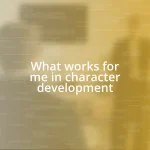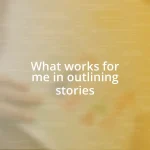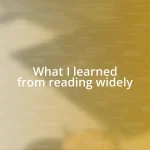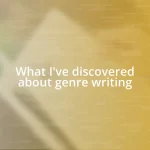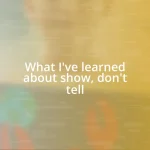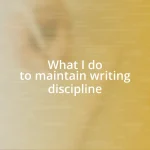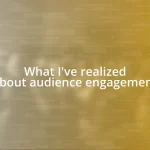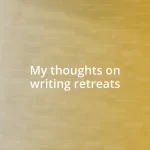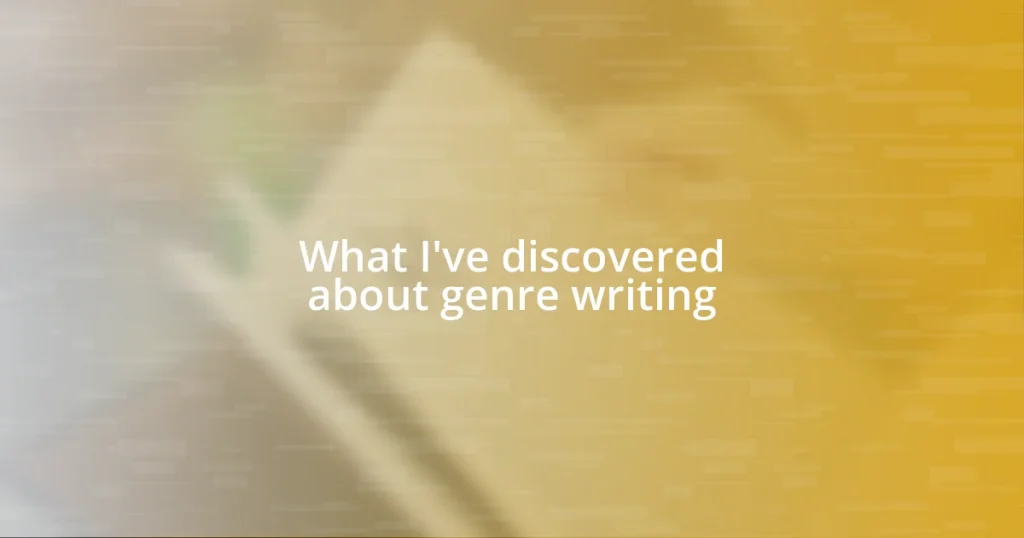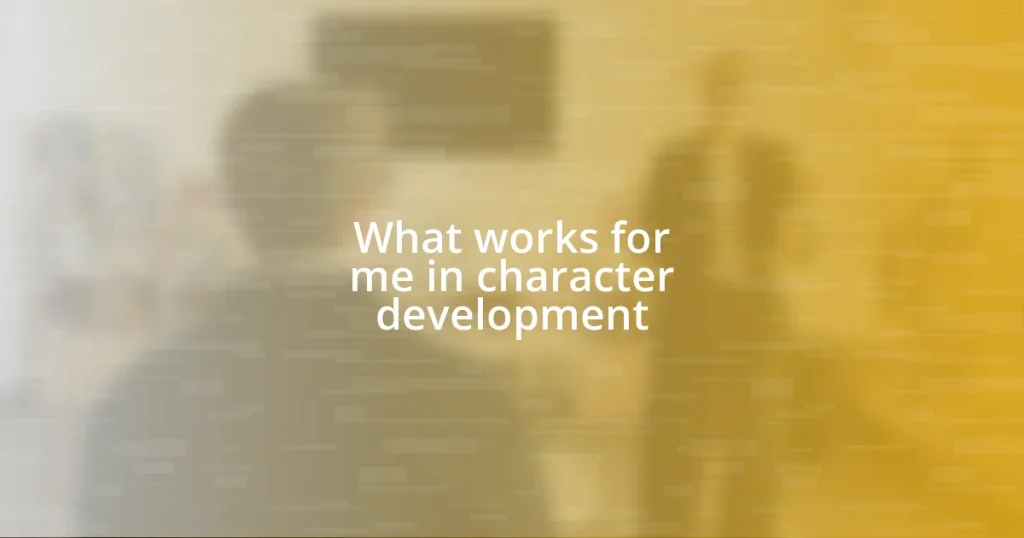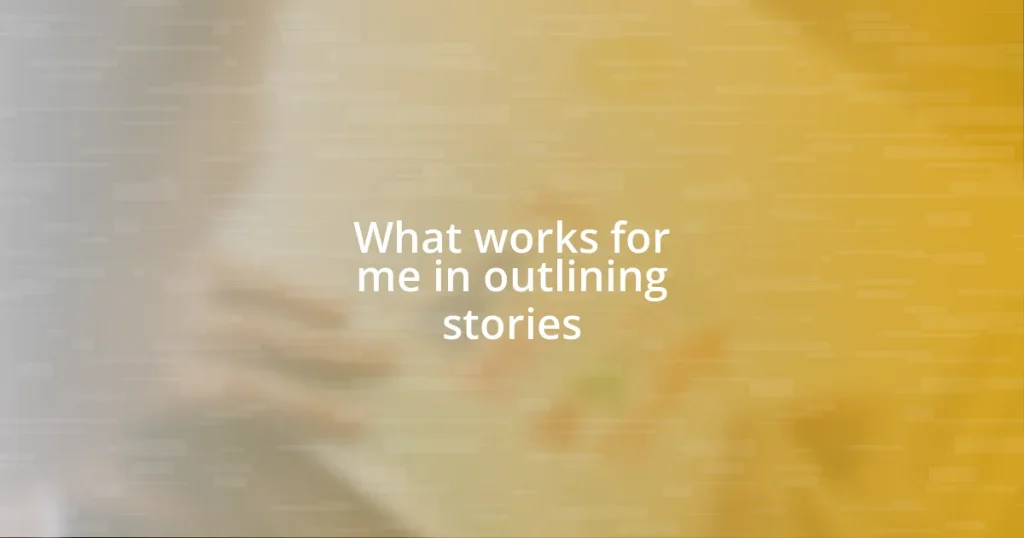Key takeaways:
- Understanding the fundamentals of genre writing is essential for effectively engaging readers and ensuring narrative cohesion.
- Current popular genres include thriller and science fiction, with romance and non-fiction (self-help, memoir) also experiencing growth, signaling evolving reader preferences.
- Blending genres fosters creativity and complexity in storytelling, while developing a unique voice can enrich narratives and resonate more deeply with audiences.
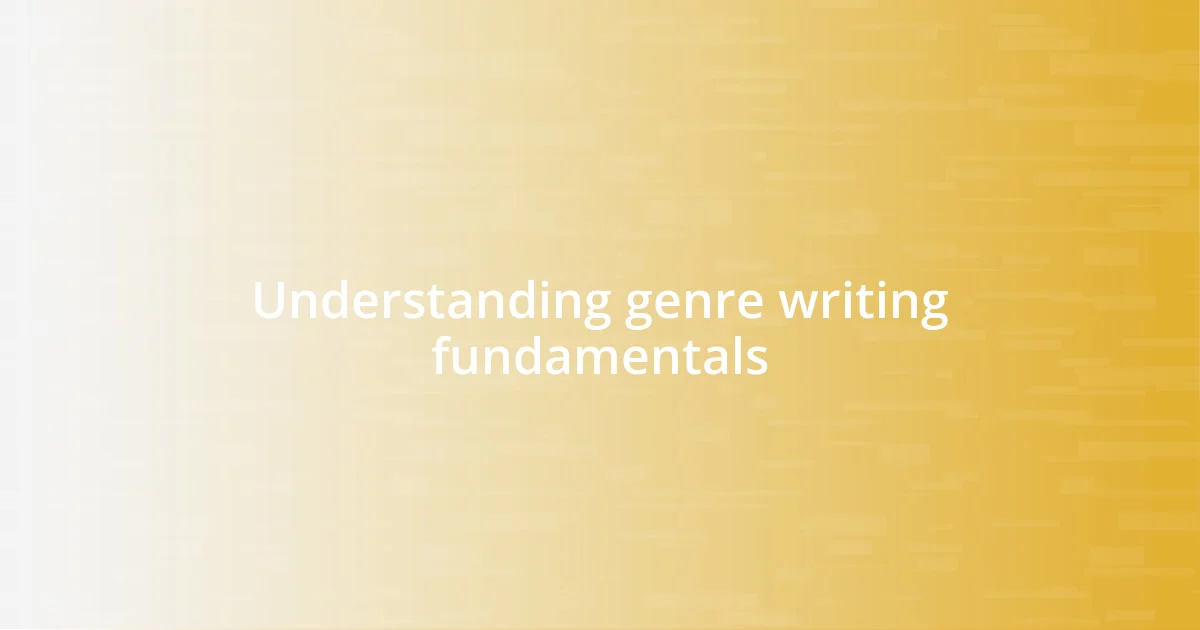
Understanding genre writing fundamentals
Understanding genre writing is about more than just labeling your work; it’s about recognizing the conventions and expectations that each genre brings. I remember when I first attempted to write my own mystery story. I was so eager to create a twist that I lost sight of the fundamental structure that keeps readers on the edge of their seats. Have you ever found yourself lost in your plot, unsure if it aligns with genre expectations? This is where understanding the basics truly transforms your writing process.
Each genre comes with its own unique flavor, like the rich spices in a recipe. For instance, when I dove into fantasy writing, I found that world-building became my greatest joy and challenge. It’s fascinating how your imagination can stretch when you know the foundation upon which to build it. Can you picture a fantasy realm without thoughtful rules or intriguing characters? Without these fundamental elements, the entire structure of your story feels fragile.
Moreover, genre writing encourages us to tap into what readers crave. In romance, I learned that the emotional journey of the characters often drives the plot forward. Have you sensed the connection that forms when readers identify with characters experiencing love or heartache? These insights helped me shape narratives that resonate, reminding me that the heart of genre writing lies in both understanding its fundamentals and connecting authentically with the audience.
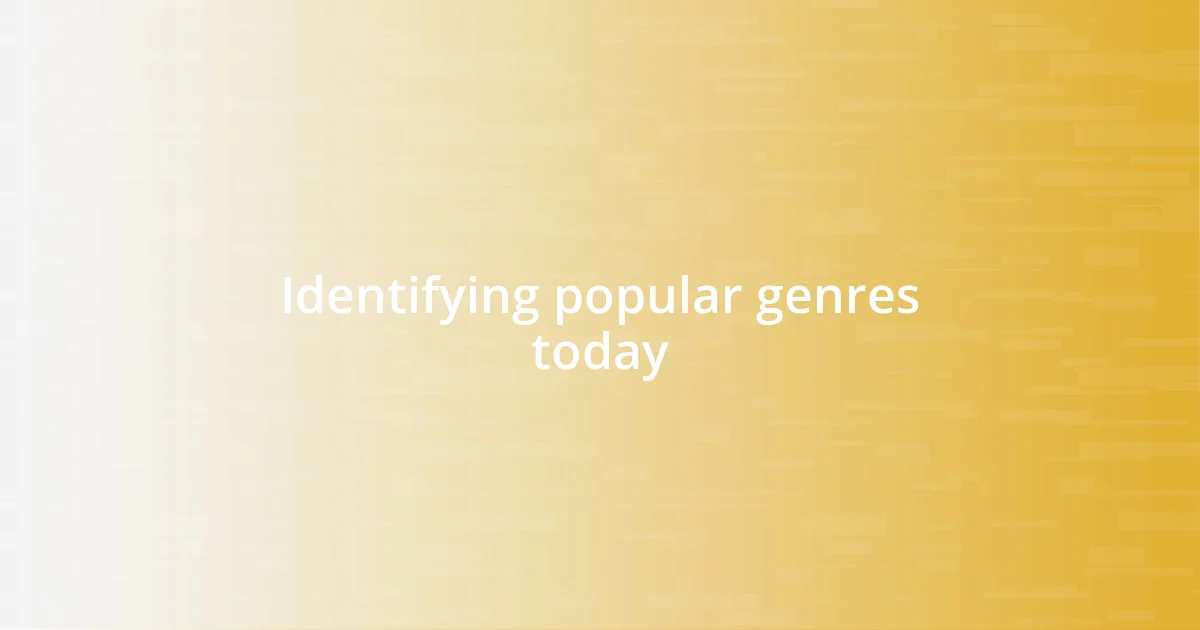
Identifying popular genres today
Identifying popular genres today requires a good grasp of audience preferences and market trends. Recently, I noticed a significant rise in popularity for genres like thriller and science fiction. In my experience, readers seem to be drawn towards stories that grip them with suspense or explore futuristic concepts. Have you noticed how a well-crafted plot twist can hook a reader, compelling them to turn page after page?
Romance continues to hold its ground, evolving more than ever with diverse subgenres like contemporary romance and romantic comedy. I remember diving into a rom-com myself, where the humor intertwined perfectly with the love story. It was an eye-opener to see how the right blend can create something fresh and appealing for today’s readers. Isn’t it exciting how various cultural themes now find their way into these popular narratives?
When looking at non-fiction, self-help and memoirs have embraced a surge in popularity, reflecting readers’ desires for authentic and relatable voices. I found myself captivated by memoirs that resonated deeply, as they often weave in personal struggles that echo our own lives. It’s a powerful reminder that genres adapt and evolve based on societal changes, giving voice to experiences we all share.
| Genre | Current Popularity Trend |
|---|---|
| Thriller | Increasing |
| Romance | Steady with subgenre growth |
| Science Fiction | Increasing |
| Non-Fiction (Self-help, Memoir) | Surging |
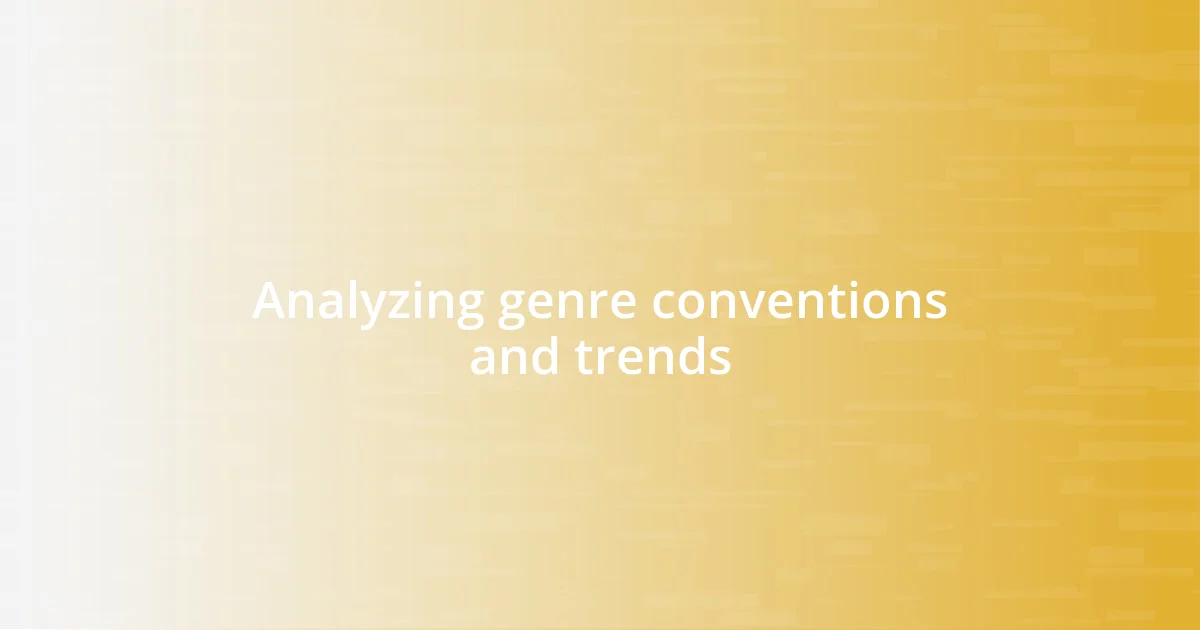
Analyzing genre conventions and trends
When I’m delving into genre conventions, I often find myself reflecting on how they create unspoken contracts between writers and readers. For example, in horror writing, there’s an inherent expectation for suspenseful pacing, eerie atmospheres, and an unsettling resolution. The first time I wrote a ghost story, I understood the power of tension and how anticipation can elevate fear. It’s like setting up dominoes; each piece needs to fall perfectly to achieve that thrilling effect.
To analyze how these conventions evolve, look at the trends influencing contemporary writing. My fascination with the rise of as-yet-untapped genres like “clean fantasy” has forced me to reconsider traditional genre boundaries. The way audiences react to these fresh approaches speaks volumes about the collective desire for new narratives.
- Popular genre conventions to consider:
- Structure: Adhering to specific plot points, like the hero’s journey in fantasy.
- Character Archetypes: Recognizable types that embody genre expectations, such as the ‘reluctant hero’ in adventure.
- Tone and Style: Each genre often demands a unique narrative voice; think of the dark humor in urban fantasy.
- Cultural Context: How societal shifts can reshape genres, evident in the growth of inclusive romance narratives.
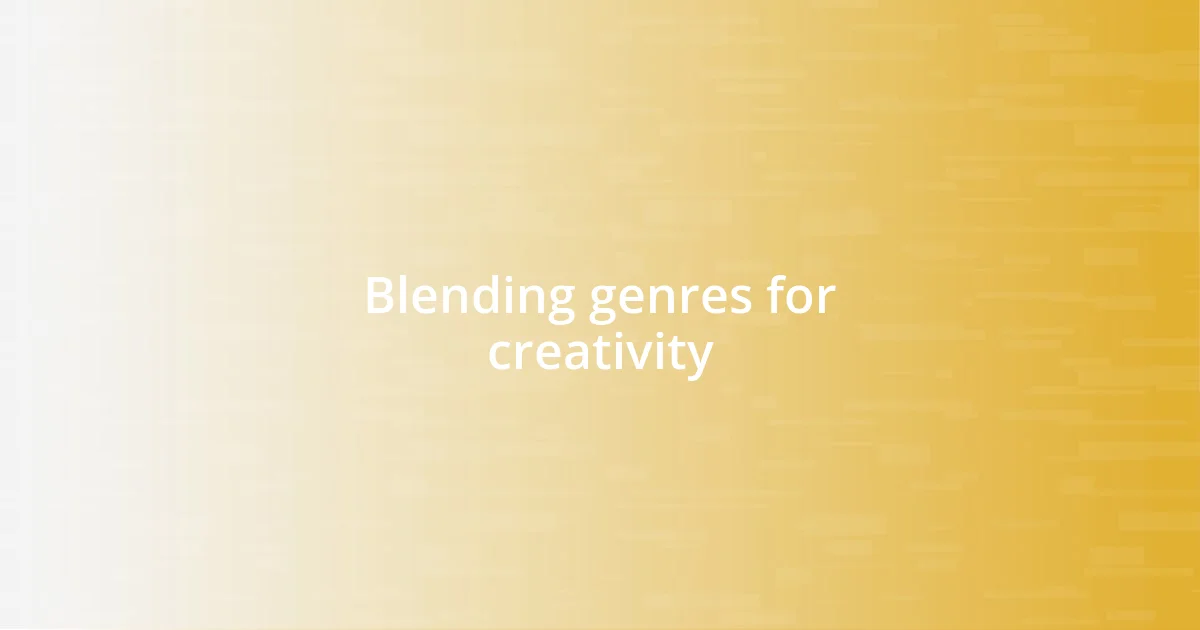
Blending genres for creativity
Blending genres can spark incredible creativity and lead to compelling narratives. I remember when I stumbled upon a graphic novel that mixed fantasy and memoir—how those vibrant illustrations complemented the author’s life story was nothing short of magical. Have you ever experienced a story that felt like a delightful surprise, breaking the boundaries you thought you knew?
As I explored hybrid genres, I found that they not only broaden a writer’s toolkit, but they also invite readers to experience familiar themes in new ways. For example, the crossover of horror with romance introduces a thrilling dynamic that keeps you on the edge of your seat while tugging at your heartstrings. It creates an emotional rollercoaster, doesn’t it?
In my writing journey, I discovered that blending genres allows for the exploration of complex characters and themes that wouldn’t fit neatly into a single category. I once wrote a piece that interwove mystery with a coming-of-age narrative. The unfolding plot not only highlighted the protagonist’s growth but also kept readers guessing. This fusion can produce an experience that’s both intellectually stimulating and deeply relatable. What blends have you tried in your own writing?
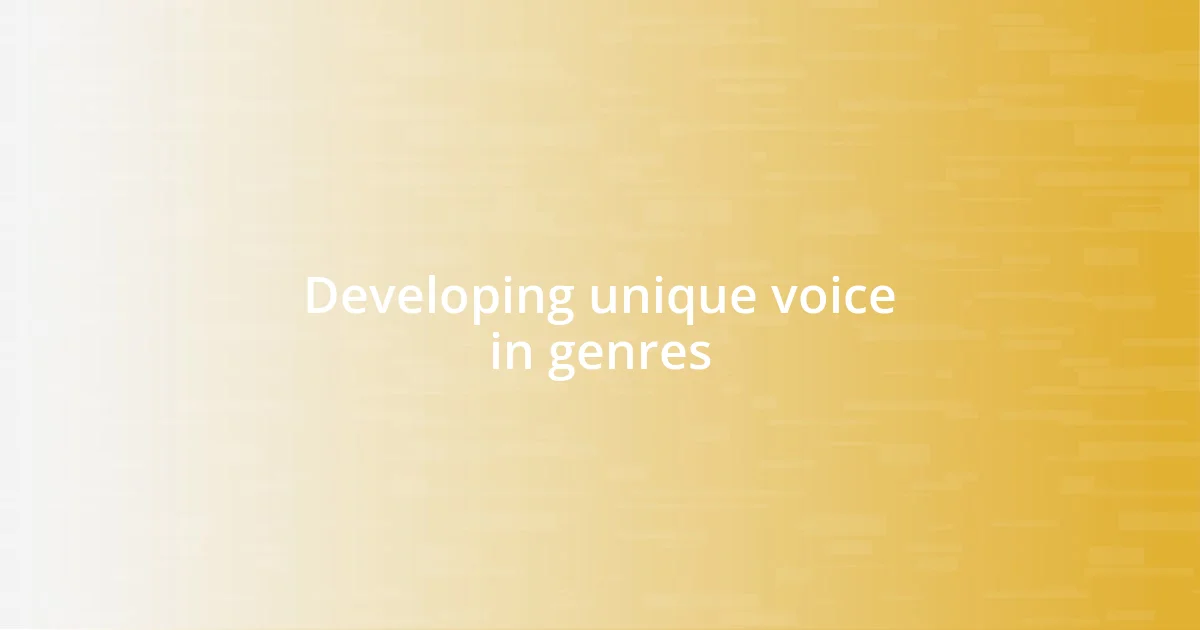
Developing unique voice in genres
Finding a unique voice within a genre is akin to discovering your personal signature style in art. I once experimented with a whimsical, yet dark, tone in a short fantasy story that juxtaposed playfulness with haunting existential themes. This blend brought a refreshing unpredictability that both surprised and engaged my readers. Have you ever noticed how some authors somehow manage to wrap profound ideas in seemingly simple words?
It’s fascinating how your voice can shape reader expectations. I remember penning a sci-fi tale where my protagonist spoke in riddles, creating an enigmatic allure that kept the audience guessing about their true intentions. This choice not only established a memorable character but also intertwined beautifully with the narrative itself, reinforcing the themes of mystery and discovery. How can your voice transform the story you want to tell?
Embracing authenticity is key to developing your voice. One time, I wrote a fictional piece that was heavily inspired by my childhood experiences, allowing me to infuse genuine emotion into the narrative. The vulnerability I expressed resonated with readers, making my story feel more relatable. It reminds me that in the realm of genres, when our true selves shine through, we gift the world a unique perspective that distinguishes our work from the rest. What aspects of your life might inspire your voice?
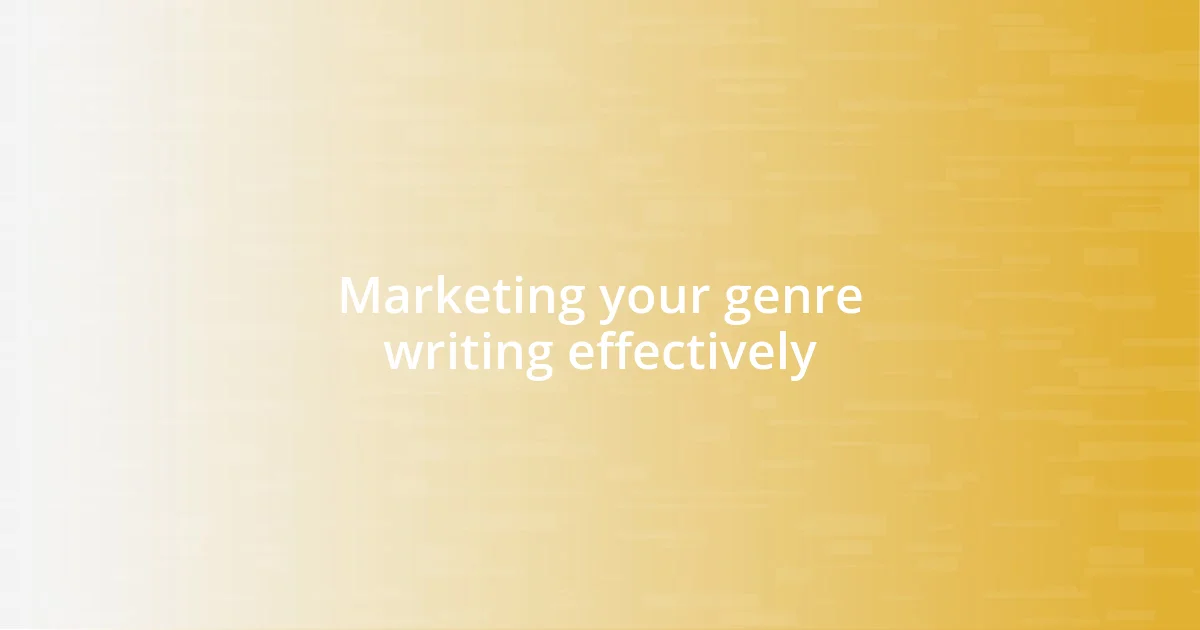
Marketing your genre writing effectively
When it comes to marketing genre writing effectively, identifying your target audience is crucial. I remember launching my first fantasy novel and being surprised by the amount of engagement I received from a niche online community devoted to speculative fiction. It taught me that connecting with readers who share a passion for specific genres can enhance visibility and foster a loyal following. So, who are your readers, and where are they hanging out?
Social media offers a powerful platform for promoting your work and engaging with your audience. I once started a Twitter thread discussing the inspirations behind my latest horror novel, and it sparked a lively conversation with fellow writers and readers. Engaging in these spontaneous dialogues not only boosts your visibility but allows you to build genuine relationships with potential readers. Have you considered sharing your creative process or insights into the genre you’re working in?
Collaborative marketing, such as joining anthology projects with other genre writers, can also amplify your reach. I had the pleasure of contributing to a multi-author collection themed around dystopian futures, and not only did it broaden my exposure, but it also fostered a sense of community among diverse writers. It’s a win-win: you gain access to new audiences while supporting fellow creatives. What creative partnerships could you explore to elevate your own marketing efforts?
